Chandratal Wildlife Sanctuary is located in the Lahul and Spiti districts of Himachal Pradesh, India. It offers a unique blend of mesmerising landscapes and rich biodiversity. It was established to protect the ecosystems and diverse wildlife and has today become a popular tourist attraction. Here, tourists can expect to witness Himalayan wildlife in its purest form. This blog contains everything you need to know before you plan your trip to visit this enchanting sanctuary.
Location
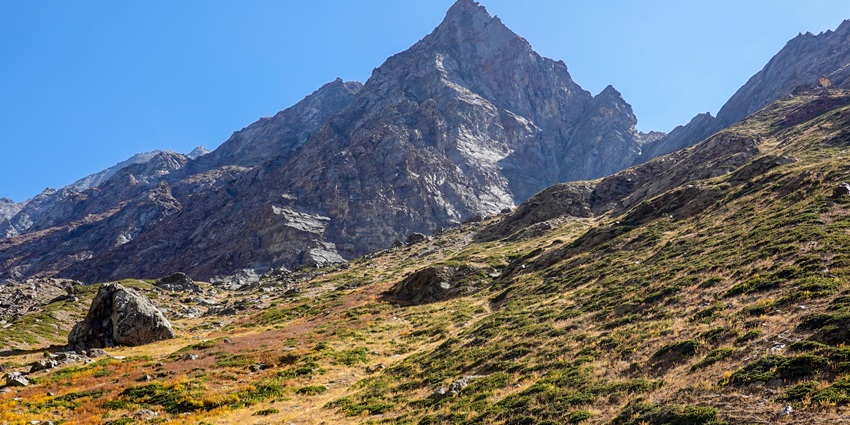
Photo: Timothy A. Gonsalves / Wikimedia Commons / Image For Representaiton Only
Chandratal Wildlife Sanctuary is situated in the northern part of Himachal Pradesh, within the Lahaul and Spiti districts. Covering an area of approximately 144,000 hectares, the sanctuary encompasses high-altitude terrains, including alpine meadows, rocky outcrops, and pristine lakes.
Suggested Read: Wildlife Sanctuaries In Himachal Pradesh To Visit On Your Upcoming Trip
How To Reach
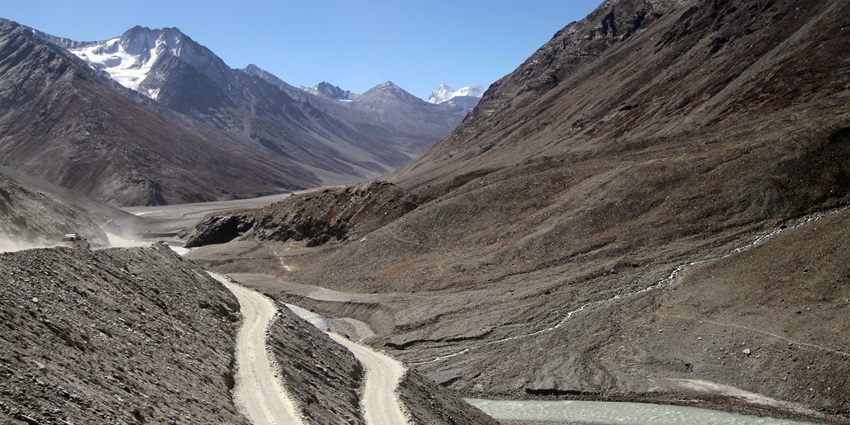
Photo: Gerd Eichmann / Wikimedia Commons / Image For Representation Only
By Air: Kullu-Manali Airport (KUU), located about 120 kilometers from the sanctuary, is the nearest major airport. Upon arriving at Kullu-Manali Airport, you can hire a taxi or take local transport to reach Manali.
By Rail: Joginder Nagar Railway Station, situated around 150 kilometers from the sanctuary, is the nearest railway station with connectivity to major cities. You can take a taxi or bus from Joginder Nagar to Manali, which takes about 4 to 5 hours.
By Road: It is approximately 500 kilometers from Delhi. You can drive or take a bus via NH3 and NH505. The drive typically takes around 12 to 15 hours, depending on traffic and road conditions.
Places To Visit In And Around Chandratal Wildlife Sanctuary
1. Chandratal Lake
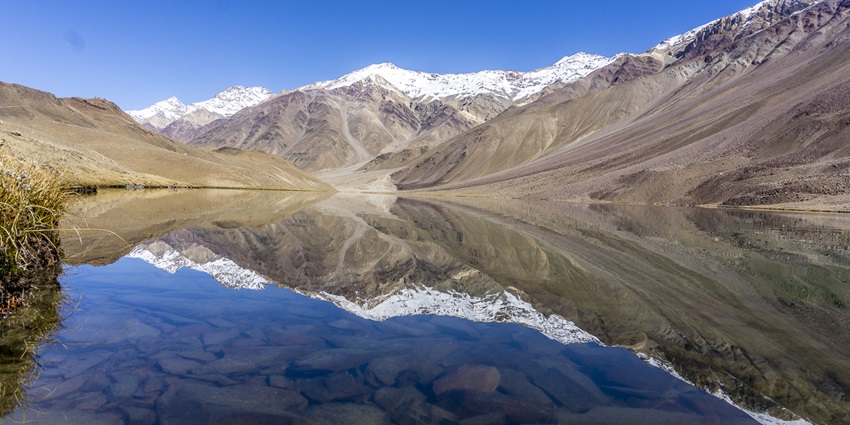
Photo: Sudhakarbichali / Wikimedia Commons
Chandratal Lake, known as “Moon Lake,” is a high-altitude lake renowned for its crescent shape and striking blue color. Situated within the sanctuary, it is surrounded by lush meadows and majestic mountains, creating a serene and picturesque environment. Visitors can trek around the lake, take in the breathtaking reflections of the peaks, and capture stunning photographs. The lake’s tranquil setting makes it a prime spot for nature enthusiasts and photographers seeking serene beauty.
Timings: 6 Am – 6 PM
Entry Fees: Free
Suggested Read: Adventure Sports In Himachal Pradesh
2. Kunzum Pass
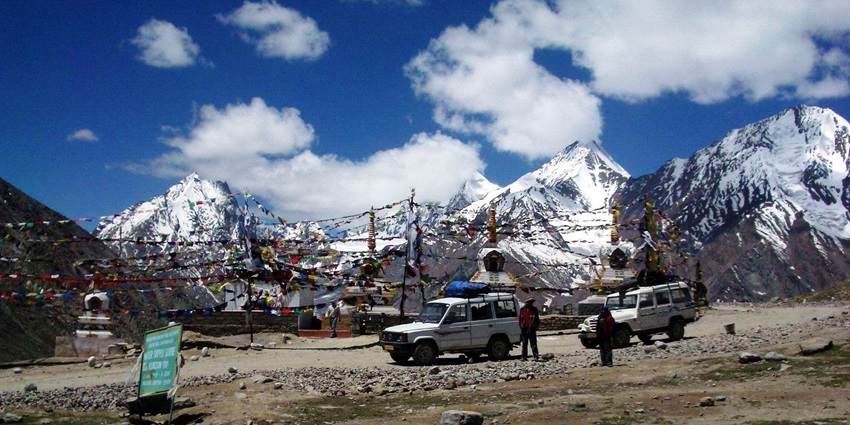
Photo: John Hill / Wikimedia Commons
Kunzum Pass, located at approximately 4,590 meters (15,060 feet), is a high mountain pass on the route to Chandratal Wildlife Sanctuary. It provides stunning panoramic views of the surrounding Himalayan peaks and valleys. The pass is perfect for photography, offering expansive vistas and dramatic landscapes. Visitors can also explore nearby monasteries, adding a cultural element to the awe-inspiring natural scenery. The pass is a significant highlight for travelers seeking majestic mountain views.
Timings: 24*7
Entry Fees: Free
3. Kibber Village
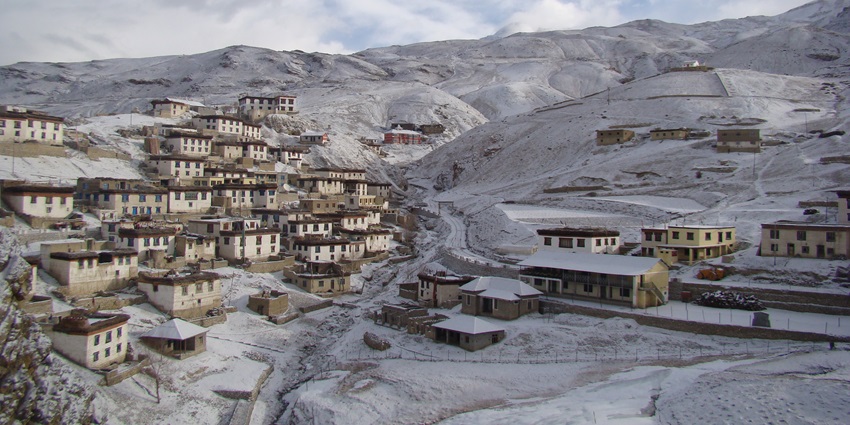
Photo: Ksuryawanshi / Wikimedia Commons
Kibber Village, one of the highest inhabited villages globally, is situated in Spiti Valley. The village is famous for its traditional architecture, ancient monasteries, and breathtaking mountain views. Visitors can explore the serene village life, visit historic monasteries, and enjoy the stunning panoramic scenery of the surrounding peaks. Kibber offers a unique glimpse into local culture and provides a tranquil escape amidst the dramatic landscape of the Himalayas.
Timings: 6 AM – 6 PM
Entry Fees: Free
Suggested Read: Explore The Diverse Wildlife Of Dhauladhar Wildlife Sanctuary In Himachal
4. Baralacha La Pass
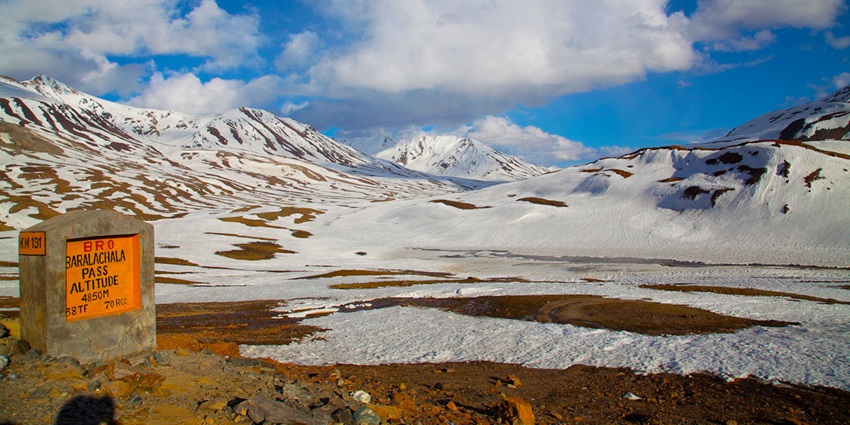
Photo: Narender9 / Wikimedia Commons
Baralacha La Pass is a high-altitude mountain pass located at an elevation of 4,890 meters (16,040 feet) and serves as a gateway to the Chandratal Wildlife Sanctuary. This pass is a crucial point on the Manali-Leh highway and offers stunning views of the surrounding snow-covered peaks and vast, barren landscapes. Trekkers and travelers often stop here to admire the panoramic vistas, making it a perfect spot for photography and a unique experience of the rugged beauty of the Himalayas.
Timings: June to September
Entry Fees: Fee
5. Suraj Tal Lake
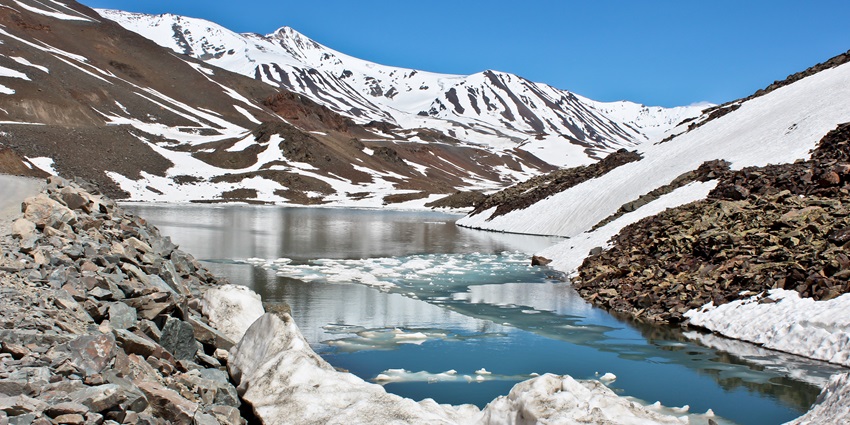
Photo: Saad Faruque / Wikimedia Commons
Suraj Tal Lake, also known as the “Lake of the Sun God,” is the third-highest lake in India, situated near the Baralacha La Pass at an elevation of 4,883 meters (16,020 feet). This pristine glacial lake is known for its crystal-clear waters and tranquil surroundings, offering a breathtaking sight for visitors. Suraj Tal is a popular spot for trekkers and adventure enthusiasts exploring the region, and it adds a serene and mystical charm to the already stunning landscapes of the sanctuary.
Timings: June and September
Entry Fees: Free
Suggested Read: Shimla Water Catchment Wildlife Sanctuary
Where To Stay Near Chandratal Wildlife Sanctuary
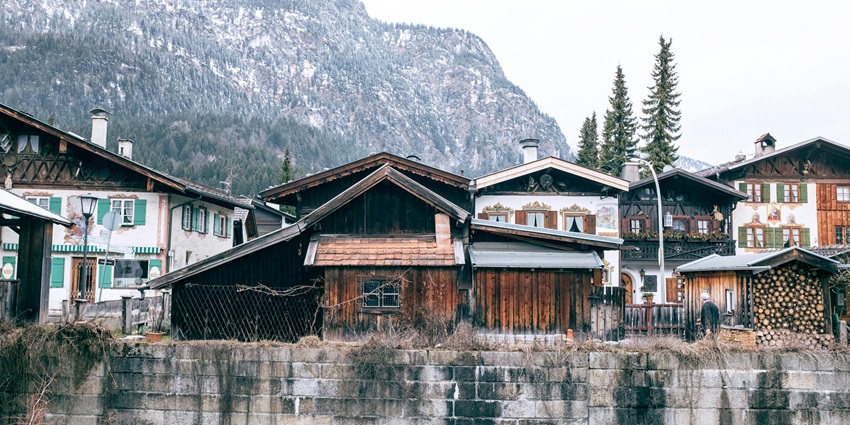
Photo: Maria Orlova / Pexels / Image For Representation Only
Several guesthouses and homestays in the near Chandratal Wildlife Sanctuary offer basic but comfortable accommodations. These provide an authentic experience and a chance to interact with local residents. For a more adventurous experience, consider camping near Chandratal Lake or other scenic spots within the sanctuary. Ensure you obtain the necessary permissions and prepare adequately for high-altitude camping.
Where To Eat Around Chandratal Wildlife Sanctuary

Photo: Pixabay / Pexels / Image For Representation Only
Traditional Himachali food is available at local eateries and guesthouses near the sanctuary. Enjoy authentic dishes such as Chana Madra and Siddu, which provide a genuine taste of the region’s culinary heritage.
Suggested Read: Explore The Diverse Wildlife Of Shikari Devi Wildlife Sanctuary In Himachal
Other Factors To Consider
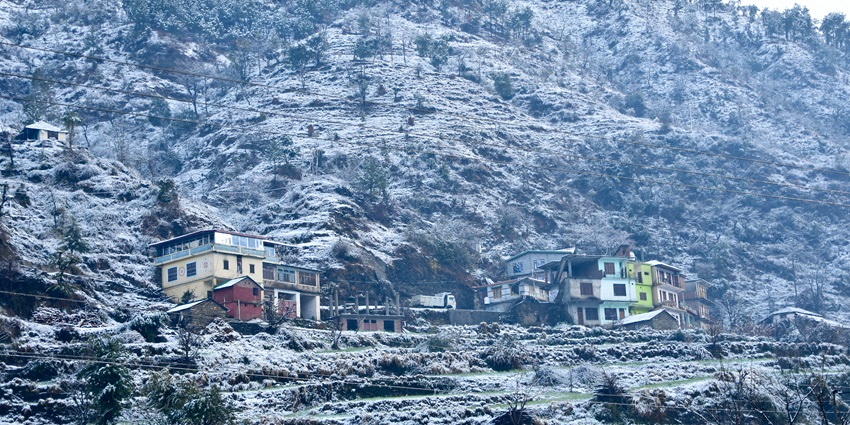
Photo: Timothy A. Gonsalves / Wikimedia Commons / Image For Representation Only
The average cost of visiting Chandratal Wildlife Sanctuary varies based on your preferences for transportation, accommodation, and activities. Budget travellers can expect to spend around ₹2,000 to ₹3,500 per day, covering basic lodging, food, and local transportation. For those seeking more comfort or luxury, daily expenses can range from ₹5,000 to ₹8,000 or more.
Tips For Travellers
- Check if you need permits from local wildlife authorities or forest departments, especially for camping or specific activities.
- Prepare for unpredictable weather, including cold temperatures, strong winds, and potential snowfall. Bring appropriate clothing and gear.
- Ensure your vehicle is suited for rough, mountainous terrain. Consider hiring a local driver experienced in navigating challenging roads.
- Be aware of high-altitude conditions and take precautions to prevent altitude sickness.
Chandratal Wildlife Sanctuary offers a unique blend of high-altitude beauty, rich biodiversity, and serene environments, making it a remarkable destination for nature enthusiasts and adventure seekers. From exploring the pristine landscapes and spotting elusive wildlife to immersing yourself in the high-altitude experience. Plan your trip with TripXl, and be ready for an unforgettable trip to the Sanctuary.
Cover Photo: Adarsh Patel / Wikimedia Commons


 WhatsApp
WhatsApp
 Twitter
Twitter









